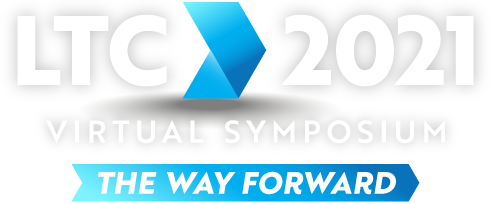
3-DAY VIRTUAL TRAINING AND STRATEGY EVENT | SEP 13-15, 2021
Sessions
Session descriptions
| All Attendees/Audiences |
| Track 1: Clinical Care/Practice |
| Track 2: Leadership/Administration |
Mon, Sep 13, 2021
NOTE: All times are Central Time.
1:00 – 2:30 PM CT
[Pre-Conference Session 1] The View from Washington: Regulatory and Legislative Insights for Long-Term Care

Cynthia Morton, NASL
Cynthia Morton, Executive Vice President, National Association for the Support of Long-Term Care (NASL)
As long-term care emerges from the ravages of COVID, the problems of staffing, occupancy, and financing won’t be solved overnight. This presentation will provide insights from a longtime Washington insider as to what policy areas will be important to the new Biden Administration. She’ll also discuss the policy priorities of the new CMS Administrator and the new HHS Secretary.
Congress has held several hearings on long-term care and those will continue. In this session, Cynthia will discuss key issues raised in these hearings that pose potential risks and opportunities, as well as possible areas of legislation to be considered by Congress, including major funding for home- and community-based care and increased regulatory requirements for LTC, including the impact of private equity.
Attendees will learn:
- The current landscape of policy priorities held over from the previous Administration
- Policy priorities of the new Secretary of HHS and new Administrator of CMS
- Subjects of congressional hearings held thus far that could develop into legislation
- Risks and opportunities for legislation impacting long-term care
- Details of Medicare Part A and Part B reimbursement reductions on the horizon
3:00 – 4:00 PM CT
[Pre-Conference Session 2] The Way Forward in Clinical Care

Mary Madison, Briggs Healthcare
Mary Madison, RN, RAC-CT, CDP, LTC/Senior Care Clinical Consultant, Briggs Healthcare
2020 and 2021 have been extremely challenging years for the LTC/PAC workforce, thanks to the COVID pandemic and ongoing PHE. We’ve learned, and continue to learn, many lessons from standing firm on the front lines of this historical event — and it’s not done with us yet!
Working in the LTC industry is not for the faint of heart – something we’ve proven without a doubt for these past 549 days. In this in-depth session, we’ll spend this time using a bit of hindsight to determine how we can move forward from this point.
Attendees will learn:
- Positive takeaways for forward management of our Infection Prevention and Control and Emergency Preparedness programs
- Why data is king and always will be
- Take care of your staff and they’ll take great care of your customers
- What to do when the waivers have ended
- The MDS 3.0 Item Set will be updated and there will be significant changes going forward – what to expect
Tue, Sep 14, 2021
NOTE: All times are Central Time.
10:00 – 11:00 AM CT
[Opening General Session] Beyond the Devastation — Bringing Quality and Financial Viability to Long-Term Care

Dr. Michael Wasserman
Dr. Michael Wasserman, Past President, California Association of Long-Term Care Medicine (CALTCM)
Nursing homes have been dramatically impacted by the COVID-19 pandemic, highlighting preexisting quality concerns and disparities. With concerns regarding the financial solvency of many nursing homes as a major issue, we cannot lose sight of the quality issues that have been exposed. This presentation will review the outcomes seen during the COVID-19 pandemic, along with the financial challenges faced by the nursing home industry, and will make pragmatic recommendations regarding how the industry can move forward.
11:30 – 12:30 PM CT
Under the Microscope: 5 Stars, QMs, QRPs, VBP, Reimbursement – A Medical Review Perspective

Susan Krall, QRM
Susan Krall, PT, RAC-CT, Chief Strategy Officer, Quality Rehab Management (QRM)
Clinical assessment, documentation of skilled services, MDS coding, and claim accuracy are critical to presenting a detailed picture of our patients’ clinical conditions upon admission, and to the care delivered and reimbursed. We are now facing a new world of exposure and risk. From public disclosure of clinical outcomes and 5 Stars within “Care Compare”, to PDPM reimbursement , Quality Measures, QRPs and VBP penalties, through Medical Review activity, what we communicate through our MDS must be backed up in the medical record. This is no easy task, and absolutely requires an interdisciplinary team effort. In this session, we’ll investigate areas of risk and share manifestations of common pitfalls to be addressed proactively.
Attendees will:
- Be able to identify high risk areas under the microscope in today’s world
- Learn detailed risk mitigation strategies
- Take away resources for implementation of systems towards successful clinical and financial outcomes
Staffing Five-Star: Strategies for Success

Polly Kirkwood, SimpleLTC

Jenn Feige, SimplePBJ
Jenn Feige, Co-Founder of SimplePBJ™
Polly Kirkwood, Vice President of Sales, SimpleLTC
This session will provide strategies to maximize your Staffing Five-Star rating related to Payroll-Based Journal (PBJ) reporting and compliance. Topics will include Five-Star staffing fundamentals, common audit triggers, PBJ best practices, and current trends in the industry. A Q&A will be offered at the end to answer your questions.
12:30 – 1:00 PM CT
Lunch & Learn Demo: SimpleLTC Tools for Success

Jenn Feige, SimplePBJ

Polly Kirkwood, SimpleLTC
Jenn Feige, Co-Founder of SimplePBJ™
Polly Kirkwood, Vice President of Sales, SimpleLTC
Get an introduction to SimpleLTC's most popular products, SimpleAnalyzer™ and SimplePBJ™, and learn how 4,500+ facilities use them to simplify workflow and improve quality and reimbursement. In this quick, live demo, Polly and Jenn will highlight the most important product features and preview a few new ones, as well as address your specific questions.
2:30 – 3:30 PM CT
Sava Case Study: Doing More with Less – The Way Forward Post-Pandemic

Amy Goldsmith, Sava
Amy Goldsmith, Senior Vice President of Care Management, Sava Senior Care
In this session, you'll learn how a leading SNF organization managed the fallout of COVID, from census drops to staffing shortages to reimbursement. One year later, Sava has pivoted to expect more from their teams as job duties have morphed, including new federal requirements for infection prevention, additional resources for screening, and changing the care coordination model with inter-professional teams taking on more cross-functional duties. You'll discover how Sava increased its oversight from regional/field support teams as they added reporting features and increased audit oversight in anticipation of reimbursement scrutiny due to the Medicare Waiver. You'll also learn how creative, out-of-the-box thinking can help nurses and leadership to empower facility teams while keeping resident care at center stage.
Attendees will learn:
- Ideas for restructuring staff duties to support clinicians – both facility and regional teams
- Inter-professional duty coordination (social services, sales, rehab, nursing, administration) to offload increased workload
- Reimbursement strategies for acuity capture
- Audit compliance tools for Medicare scrutiny
- Streamlining efficiencies – ideas for scheduling tools and centralized oversight to alleviate redundancies
- You’re not alone – we can all support each other to survive as an industry for our elders who need us
VBP Success: Navigating the Future of Value-Based Purchasing

Ethan Tayne, SimpleLTC

Jason Jones, SimpleLTC
Jason Jones, Chief Technology Officer, SimpleLTC
Ethan Tayne, Senior Product Strategist, SimpleLTC
The FY 2022 Proposed Rule includes proposals to significantly expand the Value-Based Purchasing (VBP) program. The changes would increase the number of metrics used to calculate the VBP payment multiplier from a single metric focused on Rehospitalization to a variety of metrics from different data sources. In this session, we will explore the proposed metrics and discuss their impact on the VBP program and your operations.
Attendees will learn:
- Objectives CMS is proposing to add to the VBP program
- The impact of the proposed changes on your SNF operations
- Strategies for successfully navigating the future of VBP
4:00 – 5:00 PM CT
Trauma-Informed Health Literacy: A COVID-19 Perspective

Renee Kinder, Broad River Rehab

Joel VanEaton, Broad River Rehab
Joel VanEaton, BSN, RN, RAC-CT, RAC-CTA, Master Teacher, Executive Vice President of Compliance and Regulatory Affairs, Broad River Rehab
Renee Kinder, MS, CCC-SLP, RAC-CT, Executive Vice President of Clinical Services, Broad River Rehab
Health literacy is the capacity to obtain, process, and understand basic health information needed to make appropriate health decisions. Both individuals and organizations bear the responsibility to understand and enable those with health literacy challenges. COVID-19 presented the PAC community with unique challenges and exposed gaps in our health literacy capacities, especially as this relates to trauma-informed care. With future MDS revisions to include new Health Literacy data elements, this session will prepare you to engage the concepts of Health Literacy in a COVID-informed PAC.
As a session attendee, you'll learn to:
- Define Health Literacy and Trauma-Informed Care
- Explain the importance of how COVID-19 informs both aspects of PAC care
- Identify current PAC Health Literacy gaps
- Understand MDS Revisions/The path forward
Getting Back to Business: Revenue Cycle & Reporting

Tiffany Karlin, Wipfli

Shasta McClary, Wipfli
Tiffany Karlin, Partner, Consulting Services and Director of Healthcare, Wipfli
Shasta L. McClary, Healthcare Billing Supervisor, Wipfli
Take a deep dive into Medicare Billing and Cost Report submission with Mueller Prost. This session will cover how Medicare billing is handled as well as how Medicare Cost Reports are filed.
Attendees will learn:
- The roles of the Admissions Coordinator, Business Office Manager, MDS Coordinator, Therapy Director and Outsourced Billing Company as pertains to Medicare.
- Overview of Medicare Part A SNF covered services and Medicare Part B covered services
- Required physician certifications
- The difference between Secondary Insurance Policy and a Supplemental Insurance Policy
- How Medicare cost reports are filed
Wed, Sep 15, 2021
NOTE: All times are Central Time.
10:00 – 11:00 AM CT
Recovery in a Post-COVID World

Susan Krall, QRM
Susan Krall, PT, RAC-CT, Chief Strategy Officer, Quality Rehab Management (QRM)
COVID-19 rapidly threw our industry into a frenzy of morphing signs and symptoms. Caregivers’ clinical skillsets were elevated to their highest levels as hospitalizations had to be avoided and waived. Coming out of COVID, our patients are emerging with expected — as well as a multitude of unexpected — debilitating side effects. In this session, we’ll explore the data we have the story it tells, uncovering the aftermath of this horrendous pandemic, what our clinicians are now facing in terms of lingering clinical impacts, and the tools clinicians need to help patients regain function and prevent further decline.
What you’ll learn:
- How to identify of the most common long-term COVID side effect symptoms resulting in chronic conditions
- The role expansion of interprofessional team members in adapting assessments and treatment strategies
- Strategies and tools for proactive identification and interventions to regain and maintain highest possible levels of function
Moving Forward: LTC Legal and Regulatory Updates

Janet Feldkamp, Benesch, Friedlander, Coplan & Aronoff
Janet Feldkamp, RN, BSN, LNHA, CHC, JD, Partner, Benesch Friedlander Coplan & Aronoff
This session will provide information and potential action items regarding survey and certification protocol and requirements, including recent changes and proposed changes. COVID-19 has caused tremendous chaos in the lives of facility leaders, employees and residents and facilities must move ahead at this time. The dramatic changes have effected numerous regulatory and enforcement criteria and the focus will continue to change as the country and the long term care industry recovers to what will be our new normal. CMS and state agencies frequently re-adjust their focus regarding procedures and processes for surveys. The Office of Inspector General annual work plan provides information on current focuses and understanding the importance of compliance with requirements is imperative for good leaders. Also, discussion will include other area such as emergency preparedness, HIPAA, COVID-19 and other hot topics for nursing facilities.
Attendees will learn:
- Current regulatory requirements and challenges for post-acute care facilities including new transmittals, guidance and other issuances from CMS
- Frequently cited deficiencies and situation management
- Needs for proactively addressing facility challenges facing the post-acute care industry
- Impact of the OIG’s workplan on post-acute care providers and multiple agencies focus on fraud enforcement and prevention
- Updates on Fraud and Abuse cases, enforcement and a review of current OIG workplan
11:30 AM – 12:30 PM CT
ICD-10-CM Coding: Challenges, Pitfalls and Solutions

Lisa Selman-Holman, Selman-Holman & Associates
Lisa Selman-Holman, JD, BSN, RN, HCS-D, COS-C, HCS-O, HCS-H, President, Selman-Holman & Associates
MDS nurses are still struggling with assigning codes correctly. In this in-depth session, Lisa will provide an annual coding update and discuss resolutions to major coding pitfalls to improve compliance. Bring your individual coding conundrums and questions and get expert guidance in this session.
New Payment Opportunities: How Provider Organizations Can Succeed by Taking on Risk

Ian Strand, Patient Pattern

Dr. Steven Buslovich, Patient Pattern
Steven Buslovich, MD, CMD, MSHCPM, Co-Founder, Chief Executive Officer, Patient Pattern
Ian Strand, Vice President, Health Plan Development, Patient Pattern
The financial turmoil accelerated by COVID-19 has created a sense of urgency for senior care operators to consider more sophisticated reimbursement models. For SNFs with limited resources, a one-size-fits-all approach is not effective. Instead, we need to hone in on the highest risk residents and focus resources where they have the best possible outcome for all at-risk individuals. This session will help you look toward the future, with comments on the status and progression of the most viable risk strategies available to LTC providers today.
Attendees will learn:
- Current approaches to risk adjustment and care planning for iSNPs, cSNPs, and PACE
- Shortcomings of claims-based and diagnosis-based risk stratification and care management
- Concepts about integrated PBM and medication therapy management
- Key strategies to integrate primary care providers into your plan operations
12:30 – 1:00 PM CT
Lunch & Learn Demo: How to Manage Multiple Payment Methodologies

Ian Strand, Patient Pattern

Dr. Steven Buslovich, Patient Pattern
Steven Buslovich, MD, CMD, MSHCPM, Co-Founder, Chief Executive Officer, Patient Pattern
Ian Strand, Vice President, Health Plan Development, Patient Pattern
This Lunch & Learn will be a brief overview of how to manage multiple payment methodologies at once - Presented by: Patient Pattern
2:30 – 3:30 PM CT
Future of NHSN Infection Control Reporting: Avoiding Penalties and Pitfalls

Brandon Geiger, EasyReporting
Brandon Geiger, Co-Founder, Chief Executive Officer, EasyReporting
The past year has been a whirlwind of regulatory changes in the midst of the COVID-19 pandemic. This session will provide a review of regulatory changes over the past year, as well as a forecast of expected requirements for the future of NHSN reporting. We’ll review the key changes NHSN has made in their reporting requirements, including why this has been so difficult for providers to adjust to, then delve into CMS's proposed and approved rules as we consider what Infection Control reporting might look like toward the end of 2021 and beyond.
The Way Forward: Expert Panel Discussion
Panel of LTC Experts
In this comprehensive session, a panel of our Symposium’s expert speakers will come together to provide insights on industry trends and the future of Long-Term Care. What will be our biggest challenges in the next 1-3 years? How will state issues differ from national issues? Where are the biggest growth opportunities? What are the critical next steps every SNF needs to take? Don't miss this insightful discussion from our industry’s leading experts.
4:00 – 5:00 PM CT
[Closing General Session] Patient Driven Payment Model: Understanding the Impacts

John Kane, CMS
John Kane, Technical Advisor and SNF Payment Team Lead, Centers for Medicare & Medicaid Services (CMS)
Fiscal Year 2020 brought dramatic upheaval in SNF operations as the Medicare Part A prospective payment system (PPS) transitioned from RUG-IV to PDPM. This was followed soon after by the onset of the COVID-19 pandemic and resultant public health emergency (PHE) in early 2020. During the PHE, CMS issued numerous policy waivers to assure beneficiary access to care while limiting infection control risks. In this informative session, John will share CMS perspectives of the PDPM payment model implementation and where the Agency believes it is headed based on lessons learned during the first two years under the model.
| All Attendees/Audiences |
| Track 1: Clinical Care/Practice |
| Track 2: Leadership/Administration |

